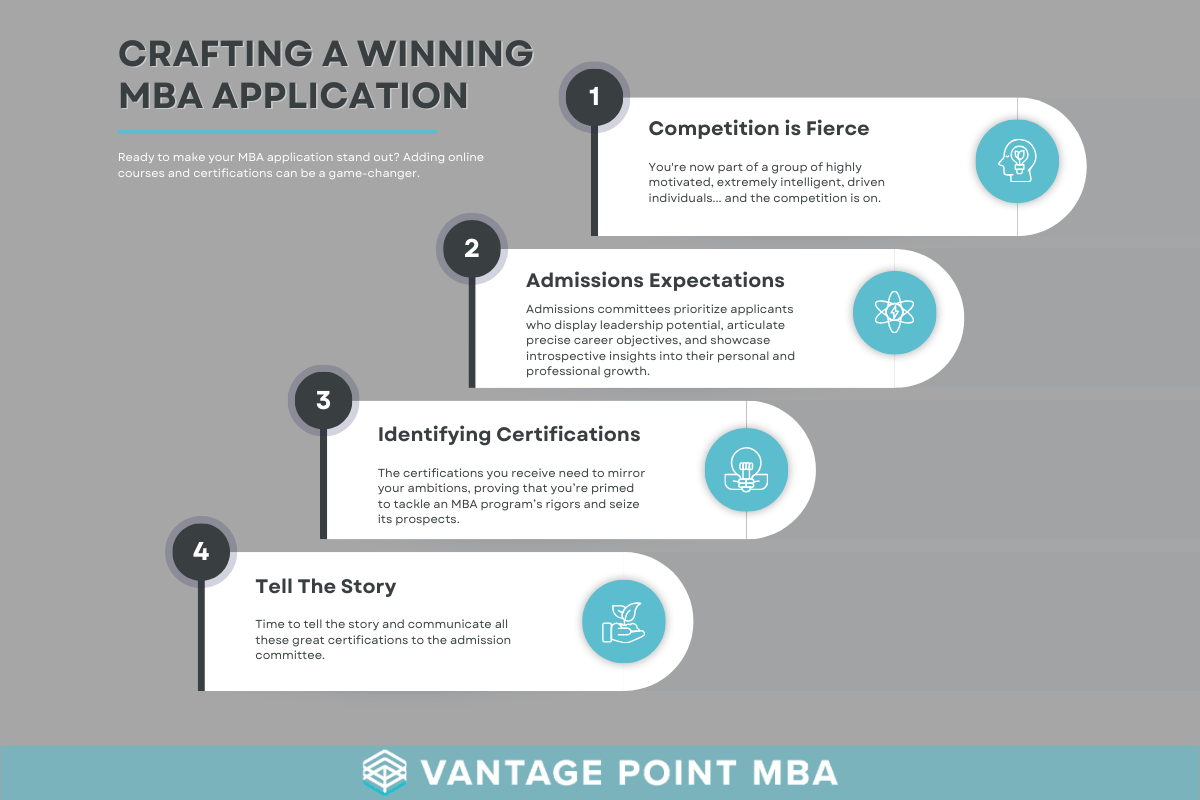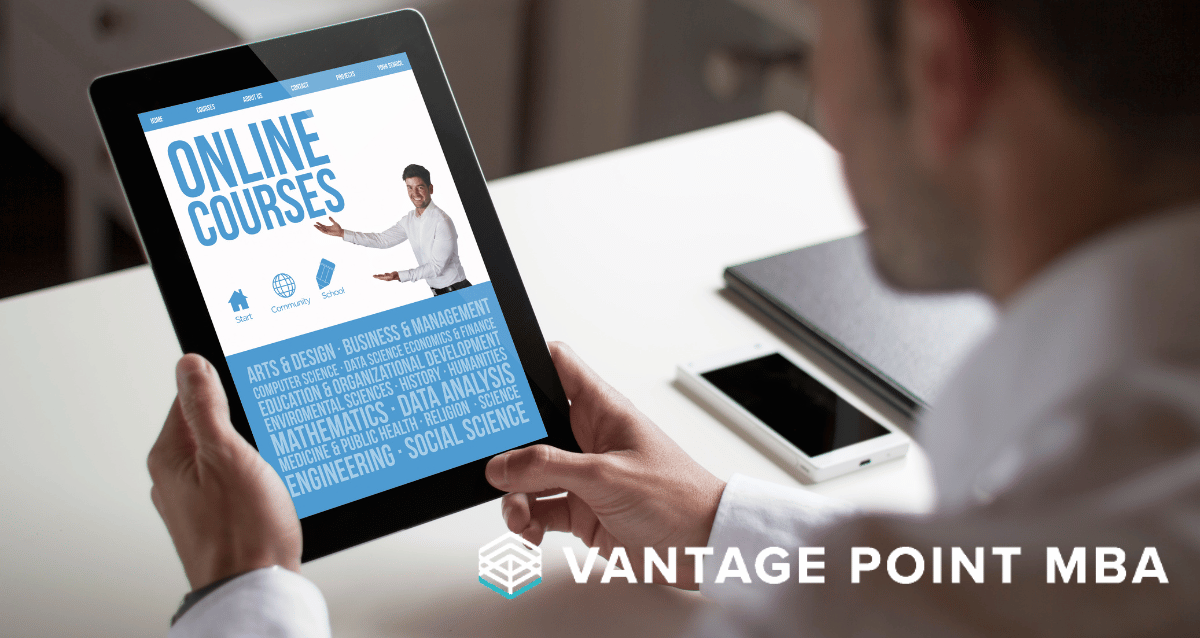Events & Promotions
|
|

GMAT Club Daily Prep
Thank you for using the timer - this advanced tool can estimate your performance and suggest more practice questions. We have subscribed you to Daily Prep Questions via email.
Customized
for You
Track
Your Progress
Practice
Pays
Not interested in getting valuable practice questions and articles delivered to your email? No problem, unsubscribe here.
- Nov 19
09:00 AM PST
-10:00 AM PST
What’s in it for you- Live Profile Evaluation Chat Session with Jenifer Turtschnow, CEO ARINGO. Come with your details prepared and ARINGO will share insights! Pre-MBA Role/Industry, YOE, Exam Score, C/GPA, ECs Post-MBA Role/ Industry & School List. - Nov 19
10:00 AM EST
-01:00 PM EST
Get expert MBA strategy, instant essay feedback, and personalized advice on your entire application. Join My Admit Coach, the AI-powered MBA admissions platform built on 10K+ successful application docs for HBS, Stanford GSB, MIT and other top programs. - Nov 19
11:00 AM EST
-12:00 PM EST
Looking to secure a coveted spot at a top business school? Our team of seasoned MBA admissions consultants, including top B schools alumni and industry leaders, is here to help turn your dreams into reality. Let’s kick-start your journey to success! - Nov 19
11:00 AM PST
-12:00 PM PST
Round 2 is here — and it’s your chance to make your MBA dream happen! Join GMAT Club’s LIVE discussion with two top experts from The Red Pen, Gunjan Jhunjhunwala and Natasha Mankikar, as we break down everything you need to know - Nov 20
07:30 AM PST
-08:30 AM PST
Learn what truly sets the UC Riverside MBA apart and how it helps in your professional growth - Nov 12
01:00 PM EST
-11:59 PM EST
Get expert MBA strategy, instant essay feedback, and personalized advice on your entire application. Join My Admit Coach, the AI-powered MBA admissions platform built on 10K+ successful application docs for HBS, Stanford GSB, MIT and other top programs. - Nov 20
10:00 AM EST
-10:30 AM EST
If you’re applying to Columbia, NYU Stern, or Yale SOM, you need more than strong stats. Each school defines “leadership” differently, and your essays must reflect that. Join Sia Admissions founder, Susan Berishaj on November 20th - Nov 20
09:00 PM IST
-10:00 PM IST
Join our free expert-led Essay Workshops to discover how to choose impactful stories, highlight your core values, and align your background with each school’s distinct culture, making every word truly count. - Nov 21
08:30 AM EST
-09:15 AM EST
Get the inside scoop on what makes Emory’s Goizueta Business School great, learn how you can present a strong MBA application, and connect with an Admissions Director to get your questions answered. - Nov 21
12:00 PM EST
-12:30 PM EST
Join Assistant Dean for Admissions Laurel Grodman for a live walkthrough of the 2025–2026 MBA application. Laurel will provide insights into what the Admissions Committee looks for and offer tips on key components of the application. - Nov 21
09:30 PM IST
-10:30 PM IST
Learn how to craft powerful, authentic essays by mastering the 3 “WHYs” every top MBA program looks for: Why MBA, Why Now, and Why This School. - Nov 24
08:00 PM PST
-09:00 PM PST
Inquire for a free profile evaluation and guarantee statement for possible admits and scholarships!
Kudos
Bookmarks
| FROM Vantage Point MBA Admissions Blog: 7 Signs You Are Ready to Apply to MBA Programs this Year |
Key Takeaways
If getting an MBA has been in your career plans, it’s not a matter of whether you will apply– but when. It’s a decision that often unexpectedly creeps up, after an external event – a layoff, a failed promotion, a gentle nudge from management, unfavorable market conditions. But what would it mean to be in the driver’s seat in deciding when you’re ready to apply? The timing of when you apply for MBA programs is a critical factor in how competitive you are. Here are seven signs that you might be ready to apply this year: 1. You have achieved professional milestone(s) and an MBA would help you hit the next one The most common reasons why people decide to pursue an MBA is to move up in their organization or make a change in their career. Some industries – like finance, consulting, or marketing – often require an MBA for an individual to advance to upper management roles. If you find yourself at a point in your career where your learning and progression have plateaued because of the need for a broader network, deeper skillset, or leadership development, you may be ready to apply for an MBA. The best time to apply is when you’ve achieved at least one major milestone or promotion and have had experience leading projects, initiatives, and/or cross-functional teams. Your leadership and real-world work experiences will allow you to contribute to classroom discussions, select appropriate classes and experiential learning opportunities to enhance your skillsets, and overall make the most of your MBA experience. 2. You have developed a strong foundation of leadership experiences One of the most compelling elements of an MBA application is leadership potential as demonstrated through leadership roles. The MBA, after all, is more than just about academics and learning about business foundations; it’s a leadership development program. MBA programs look for candidates who have a perspective on leadership that is grounded in their own experience and who have a desire to build on their leadership abilities. Leadership experience doesn’t necessarily mean that you have had direct reports or outright managed people. In the workplace, it could be leading a project/workstream/initiative, mentoring junior colleagues, or being the junior representative on a DEI council. Outside of work, it could be being a community leader, mentoring youth, starting a nonprofit, or organizing a fundraiser. If you’ve had meaningful experiences of influence working with different people to achieve a goal, then you have a solid foundation of leadership experiences to draw from to make further exploration of your leadership potential through an MBA worthwhile. Ready to take the first step towards your MBA? Request an initial consultation with a member of our team to discuss if you should apply this year or wait. Request An Initial Consultation 3. You have strong recommenders waiting in the wing In a sea of accomplished applicants, a strong endorsement of an applicant’s leadership potential can make a difference in whether that person is admitted or waitlisted rather than denied. Most MBA programs require two letters of recommendation from current and former supervisors. This allows the admissions committee to get multiple perspectives of a candidate’s professional contributions, leadership potential, and personal qualities. What makes a strong letter of recommendation is specificity, examples, and stories. It can take time to cultivate the kind of relationship and mentorship with a supervisor that would lend itself to a strong recommendation. If you have developed meaningful relationships with two supervisors who support your decision to get an MBA and who would agree to write you a recommendation, it may be a good time to apply while these people are still in their roles. 4. You have a short list of MBA programs that you’d like to apply to Deciding which MBA program is right for you naturally follows making the decision to pursue an MBA. You may have an idea of which programs you’d like to apply to based on rankings or where people you know have gone. But it is important for you to develop your own rankings based on your values and goals for pursuing an MBA. This process can take some time and dedication, if done right. But it’s important not only for yourself but also to stand out amongst other applicants. Invariably, there is a part of the application where you will have to answer the question, “Why our program?” The stand-out answers demonstrate an intimate knowledge of the offerings and culture of a school gleaned through deep research by way of conversations with students, alumni and admissions members, campus visits, and even class visits. Consider applying when you are motivated to do this work and think earnestly about your personal and professional goals. 5. You are in the age “sweet spot” Most people do not consider their age when deciding if they’re ready to apply to business school. But it can be an important factor in your competitiveness to full-time MBA programs. Admissions committees use age as a proxy for maturity, experience, and even ambition. Applying too young (2-3 years out of college) and you run the risk of seeming too green and inexperienced to make meaningful contributions to your classmates’ learning. Applying too late (6+ years out of college) and you run the risk of seeming unprepared and “late to the game,” having a shorter runway to reach your career goals post-MBA. The average age of the current full-time MBA classes of HBS and Stanford GSB are both 27. The sweet spot tends to be 5 years out of college. So, if you are approaching your fifth year of work experience, it is a good time to consider applying before you move into an age range where your application may be met with more scrutiny. Whatever age you are, it’s worth looking at the average age of admitted students of the programs you’re considering to get a sense of whether you are above or below and how to strategically approach your application accordingly. 6. You have clear career goals This may be one of the more misunderstood aspects of the MBA application process. Many MBA hopefuls believe that business school is where they will figure out their career path and discover the right next step. And while an MBA is certainly a time for exploration, the heavy lifting of career goal development needs to take place long before you set foot on campus. In fact, it’s an essential part of the work you’ll do even before you write your MBA essays. If your post-MBA career is the “R” in the ROI of an MBA, it’s very difficult to know if an MBA is worth it for you without knowing what success looks like on the other side. In addition, having a strategic vision for your career path will help you choose the right MBA programs. That said, don’t let lack of clarity around your goals paralyze you. This is one aspect of the application process that you can accelerate and seek help with. More than half of our clients begin working with us before having full clarity on their post-MBA goals. We work with them on further developing their vision and filling in the gaps so that by the time they start writing their essays, they know exactly what steps they want to take next – and how an MBA fits in. 7. Your personal financial ducks are in a row This is a big one because business school is most likely the most expensive investment you’ll make in your adult life so far. A top MBA has a 6-figure price tag for tuition alone. Add in rent in a new city, travel costs, and the opportunity cost (i.e. lost income for 2 years) – and the figure is eye-popping. So you want to be prepared to shoulder the expense and have a game plan for how you plan to finance your MBA. Thankfully there are many ways to pay for an MBA, from merit-based scholarships and need-based aid to student loans and good old-fashioned savings. Every applicant’s situation is unique and many applicants will pay for their MBA using a combination of those methods. No matter what you do, be sure you’re comfortable with it and have a buffer. Once you get to school, you want to focus fully on your classes, recruiting, and networking opportunities rather than worrying about financial burdens. Ready to apply to business school? Schedule a free consultation with our team of experts to assess your timing, refine your application strategy, and ensure you’re on the right track. Request An Initial Consultation The post 7 Signs You Are Ready to Apply to MBA Programs this Year appeared first on Vantage Point MBA. |
This Blog post was imported into the forum automatically. We hope you found it helpful. Please use the Kudos button if you did, or please PM/DM me if you found it disruptive and I will take care of it.
-BB
Kudos
Bookmarks
| FROM Vantage Point MBA Admissions Blog: How to Write a Great MBA Essay |
|
“I’m glad we trashed those initial MBA essays”, our client, Ben, told his consultant, Alan. Ben is one of those smart, hard-working, rockstars whom private equity firms will one day pay huge amounts of money to run portfolio companies. At the same time, he is a thoughtful person you would trust with a big favor at the drop of a dime. His communication skills are solid. After all, his bosses ask him to put together and deliver presentations to C-level executives at leading companies. So why would he say, “I’m glad we trashed those initial MBA essays” the day after he submitted his application? You would think writing a personal statement for business school would be simple for him. But he is not alone. On average, 7 out of 10 of our clients gut the first drafts of their MBA essays. So, why is writing a ~500 word essay about yourself so hard for so many truly gifted people? [b]Have a Clear, Focused Message[/b] The problem isn’t their writing ability. It’s what they need to write. An MBA application essay is not the same as a college essay. A college essay needs to share that you are a smart young person with great potential. That’s pretty open-ended. An MBA essay, on the other hand, has to have a clear focused message: “This is where I am going and this is how my previous life paved the way for me to get there.“ Some MBA applicants [url=https://vantagepointmba.com/application-advice/three-mistakes-to-avoid-in-your-mba-application-essays/]try to fudge[/url] the part on, “This is where I am going”. Admissions officers [url=https://poetsandquants.com/2020/10/14/harvard-business-school-rejected-these-mba-applicants-last-week-seriously/]filter them out[/url]. Muddled students poorly use MBA resources and often have muddled careers. Clear students efficiently use their MBA program resources (classes, clubs, career support, and alumni network), then often graduate on a single trajectory where their dedication and talent can take them to noteworthy places. [b]Map Your Career Trajectory[/b] A fair number of applicants know deep down where they want to go. Many need a push to own it. Once they do, it’s transformative. It’s like they molt their shell of smart generalist and take charge of their life’s direction. You can see the spark in their eyes. Others have a general sense of what they want but haven’t formed it into words, nor aligned it with a career path. They research possibilities. We [url=https://vantagepointmba.com/services/]work together[/url] to get clear on their desires and dreams. Before they start writing, they mapped their career trajectory. We encourage you to do the same. If you don’t know what you want, work on it. If you still can’t get there, you may want to wait to apply. Sometimes writing changes their perspective on what they want; “No, deep down, I don’t believe this is true about myself.” Insert essay into trash bin. Start again with newfound clarity. [b]Connect The Dots Between Your Goals and Your Past[/b] With a clear destination for their story, they need the substance of that story, selected from their life. That’s the second major challenge in writing MBA essays, “How do I get perspective on myself from inside the fish bowl?“ A good place to start that introspection is to list out the significant personal and professional events in your life. When you’re burned out on introspection, take time to do something else. Talk with people who matter. Then go back to introspection. Repeat. “How do these experiences connect to my [url=https://vantagepointmba.com/application-advice/mba-career-goals-part-ii-crafting-a-compelling-long-term-vision/]long-term career goals[/url]?” More introspection and reflection. It is not the typical linear work process: data in, solve problems, work product out. It’s more like drawing a constellation – you connect the dots, but some dots are hard to see, and others you completely ignore. This takes a lot of work. “Does Coach J’s incredible mentorship really matter? How does it connect with my goal to run a value-investing fund?” “Oh! Now that I think about it, the frustration I felt freshman year helping that pop-up store capitalize on a short-term fashion trend was pivotal to my concept of business – even if I was responsible for nearly 40% of their overall sales.” Usually, in early MBA essay drafts, applicants have not gone deep enough. As they peel the onion, they discover they have more thoughtful ways to talk about their life experiences. Delete. Write. Scratch out half. Write. Add different experience. Rework. Too long-winded. Rework. Presto. [b]Make The Case For The MBA[/b] The final piece that is unique about MBA application essays is that you need to discuss your life experiences within the frame of an MBA. Your non-business experiences need to take a business flavor. “Coach J’s unrelenting practices of sport fundamentals made me appreciate value-investing’s focus on business fundamentals.” “My social psychology research can help companies break into new markets.” Depending on the business school, the flavor will be different: superhero leadership, results-driven transformation, value-based impact, innovative breathroughs, among others. In the final version of your MBA essays, these pieces fit together into a single story arc. And squeeze into the word count. Most people don’t get this right on the first draft. Or the second. Or the third. And we don’t expect them to. If you’re feeling stuck on your essays or could benefit from feedback on what you’ve written so far, [url=https://vantagepointmba.com/request-consultation/]schedule a call[/url] with a member of our team by clicking the button below. The truth is that all feedback isn’t created equal. But feedback from an [url=https://vantagepointmba.com/team/]expert[/url] who knows your audience and knows what it takes to get accepted is worth its weight in gold. [url=https://vantagepointmba.com/request-consultation/]Request An Initial Consultation[/url] The post [url=https://vantagepointmba.com/application-advice/how-to-write-a-great-mba-essay/]How to Write a Great MBA Essay[/url] appeared first on [url=https://vantagepointmba.com]Vantage Point MBA[/url]. |
This Blog post was imported into the forum automatically. We hope you found it helpful. Please use the Kudos button if you did, or please PM/DM me if you found it disruptive and I will take care of it.
-BB
Kudos
Bookmarks
| FROM Vantage Point MBA Admissions Blog: MBA Application Deadlines and Essays for 2024-2025 |
|
The 2024-2025 MBA application season is underway as schools have begun sharing their deadlines and essays for this upcoming cycle, with many more expected over the next month. While many schools have kept their questions the same from last year’s cycle, we do expect some marquee changes this year as well. Round 1 MBA Application Timeline Round 1 applicants should be pedal to the medal putting together their application package. Over the next month, we encourage applicants to prepare an [url=https://vantagepointmba.com/application-advice/how-to-make-your-resume-mba-ready/]MBA-style resume[/url], nail down their test score, and have initial conversations with their prospective [url=https://vantagepointmba.com/application-advice/choose-recommenders/]recommenders[/url]. If you feel behind the 8-ball, don’t worry. There is still time to get back on track and put together a compelling application. But don’t put these items off much longer or you will start to compromise on the quality of your materials. Which Round Should I Apply In? Applicants often also struggle with the “Which Round should I apply in?” question. The short answer is you should apply when you feel like your materials are as strong as possible, but there are definitely some other considerations when deciding when to apply. (See our longer article on [url=https://vantagepointmba.com/2019/06/11/round-1-or-round-2/]Round 1 vs. Round 2[/url] if you’re on the fence.) Round 1 is appealing for lots of applicants as no spots have been filled in the class yet allowing those with more traditional backgrounds the opportunity to make their case. However, a lot of applicants who apply in Round 1 have been thinking about this decision for several years and have been focused on putting together the best application possible thus creating a competitive applicant pool. Round 2 is the generally the biggest round with the largest volume of applications and varying application strength across the board. In summary, take your time to build the strongest application you can, even if it means applying in Round 2 or applying to a few schools in Round 1 and a few others in Round 2. Early Application Considerations Some programs also offer guaranteed interviews if you apply before a certain date. While acceptance rates are higher the earlier you apply to these programs, some of them may have binding commitments so be sure to weigh the pros and cons. Consider applying to a school that may be a tad out of reach early. You can demonstrate your commitment to the school and they are more likely to offer you a spot if they know you will commit. 2024-2025 MBA Application Deadlines * Below are the MBA application deadlines that have been released thus far for 2024-2025. Stay tuned over the next month or so as many more schools will look to publish their application deadlines and essay questions soon! [b]Early Action[/b][b]Round 1[/b][b]Round 2[/b][b]Round 3[/b]HBS09/04/202401/06/2025–Stanford GSBWharton09/04/202401/03/202504/02/2025Chicago BoothKellogg09/11/202401/08/202504/02/2025MIT SloanColumbia Business School09/10/202401/07/202504/01/2025TuckHaas09/12/202401/09/202504/03/2025Yale SOM09/10/202401/07/202504/08/2025Michigan Ross09/09/202401/06/202503/24/2025UCLA Anderson10/01/202401/06/202504/14/2025DardenNYU Stern09/16/202410/16/202401/16/2025Duke FuquaCornell JohnsonINSEAD – Aug ’25 Entry09/10/202411/05/202401/14/2025LBSCambridge Judge08/27/202410/07/202401/06/2025Oxford Said 2024-2025 MBA Application Deadlines and Essay Questions By School [b][url=https://mba.haas.berkeley.edu/admissions]Berkeley Haas[/url][/b] [list] [*]Round 1 MBA Deadline: September 12, 2024[/*] [*]Round 2 MBA Deadline: January 9, 2025[/*] [*]Round 3 MBA Deadline: April 3, 2025[/*] [/list] [b]Question(s):[/b] What makes you feel alive when you are doing it and why? (300 words) What are your short-term and long-term career goals, and how will an MBA from Haas help you achieve those goals? (300 words) One of our goals at Berkeley Haas is to develop leaders who value diversity and to create an inclusive environment in which people from different ethnicities, genders, lived experiences, and national origins feel welcome and supported. Describe any experience or exposure you have in the area of diversity, equity, inclusion, justice, and belonging whether through community organizations, personal, or in the workplace? (300 words) [b][url=https://www.jbs.cam.ac.uk/masters-degrees/mba/apply/]Cambridge Judge[/url][/b] [list] [*]Round 1 MBA Deadline: August 27, 2024[/*] [*]Round 2 MBA Deadline: October 7, 2024[/*] [*]Round 3 MBA Deadline: January 6, 2025[/*] [*]Round 4 MBA Deadline: March 31, 2025[/*] [/list] [b]Question(s):[/b] Please provide details of your post-MBA career plans. The statement should not exceed 500 words and must address the following: [list] [*]What are your short and long-term career objectives? How will the Cambridge MBA equip you to achieve these?[/*] [*]Looking at your short-term career goal, describe the research you have done to understand how this industry/role/location recruits MBA talent and what they are looking for in a candidate?[/*] [*]How confident do you feel about meeting your short-term career goal? What skills/characteristics do you already have that will help you to achieve them, and what preparation are you doing now?[/*] [/list] Tell us about a time when you made a professional mistake. How could it have ended differently? (up to 200 words) Tell us about the best team you worked with. What made the team successful? (up to 200 words) Provide an example of when someone else positively impacted your life. What did you learn from this experience? (up to 200 words) [b][url=https://academics.business.columbia.edu/mba/admissions/options-deadlines]Columbia Business School[/url][/b] [list] [*]Round 1 MBA Deadline: September 10, 2024[/*] [*]Round 2 MBA Deadline: January 7, 2025[/*] [*]Round 3 MBA Deadline: April 1, 2025[/*] [*]J-Term Round 1: June 18, 2024[/*] [*]J-Term Round 2: August 15, 2024[/*] [/list] [b]Question(s):[/b] What is your immediate post-MBA professional goal? (50 characters maximum) Why do you prefer the January-entry term? (50 characters maximum) Through your resume and recommendation, we have a clear sense of your professional path to date. What are your career goals over the next three to five years and what is your long-term dream job? (500 words) The Phillips Pathway for Inclusive Leadership (PPIL) is a co-curricular program designed to provide students with the skills and strategies needed to develop as inclusive leaders. Through various resources and programming, students explore and reflect on the following five inclusive leadership skills: Mitigating Bias and Prejudice; Managing Intercultural Dialogue; Addressing Systemic Inequity; Understanding Identity and Perspective Taking; and Creating an Inclusive Environment. Describe a time or situation when you had the need to utilize one of these five skills, and tell us the actions you took and the outcome. (250 words) We believe Columbia Business School is a special place with a collaborative learning environment in which students feel a sense of belonging, agency, and partnership–academically, culturally, and professionally. How would you co-create your optimal MBA experience at CBS? Please be specific. (250 words) [b][url=https://www.hbs.edu/mba/admissions/Pages/application-dates.aspx]Harvard Business School[/url][/b] [list] [*]Round 1 MBA Deadline: September 4, 2024[/*] [*]Round 2 MBA Deadline: January 6, 2025[/*] [/list] [b]Question(s):[/b] To be announced on June 25, 2024 [b][url=https://www.insead.edu/master-programmes/master-business-administration/admissions]INSEAD (August Intake)[/url][/b] [list] [*]Round 1 MBA Deadline: September 10, 2024[/*] [*]Round 2 MBA Deadline: November 5, 2024[/*] [*]Round 3 MBA Deadline: January 14, 2025[/*] [*]Round 4 MBA Deadline: March 4, 2025[/*] [/list] [b]Question(s):[/b] Briefly summarize your current (or most recent) job, including the nature of work, major responsibilities, and where relevant, employees under your supervision, size of budget, clients/products and results achieved. (200 words) What would be your next step in terms of position if you were to remain in the same company? (200 words) Please give a full description of your career since graduating from university. Describe your career path with the rationale behind your choices. (300 words) Discuss your short and long term career aspirations with an MBA from INSEAD. (100 words) Give a candid description of yourself (who are you as a person), stressing the personal characteristics you feel to be your strengths and weaknesses and the main factors which have influenced your personal development, giving examples when necessary. (500 words) Describe the achievement of which you are most proud and explain why. In addition, describe a situation where you failed. How did these experiences impact your relationships with others? Comment on what you learned. (400 words) Describe all types of extra-professional activities in which you have been or are still involved for a significant amount of time (clubs, sports, music, arts, politics, etc). How are you enriched by these activities? (300 words) [b][url=https://www.kellogg.northwestern.edu/admissions/ft-admissions.aspx]Kellogg[/url][/b] [list] [*]Round 1 MBA Deadline: September 11, 2024[/*] [*]Round 2 MBA Deadline: January 8, 2025[/*] [*]Round 3 MBA Deadline: April 2, 2025[/*] [/list] [b]Question(s):[/b] Question 1 (450 words): Intentionality is a key aspect of what makes our graduates successful Kellogg leaders. Help us understand your journey by articulating your motivations for pursuing an MBA, the specific goals you aim to achieve, and why you believe now is the right moment. Moreover, share why you feel Kellogg is best suited to serve as a catalyst for your career aspirations and what you will contribute to our community of lifelong learners during your time here. Question 2 (450 words): Kellogg leaders are primed to tackle challenges everywhere, from the boardroom to their neighborhoods. Describe a specific professional experience where you had to make a difficult decision. Reflecting on this experience, identify the values that guided your decision-making process and how it impacted your leadership style. [b][url=https://www.london.edu/masters-degrees/mba/apply#application-calendar]London Business School[/url][/b] [list] [*]MBA Deadlines: To be confirmed[/*] [/list] [b]Question(s):[/b] What are your post-MBA goals and how will your prior experience and the London Business School programme contribute towards these? (500 words) [b][url=https://michiganross.umich.edu/graduate/full-time-mba/admissions/application-requirements]Michigan Ross[/url][/b] [list] [*]Round 1 MBA Deadline: September 9, 2024[/*] [*]Round 2 MBA Deadline: January 6, 2025[/*] [*]Round 3 MBA Deadline: March 24, 2025[/*] [/list] [b]Question(s): [/b] At Michigan Ross, we believe the best way to learn is by doing. In our Full-Time MBA Program, you will put your skills and knowledge to the test in real-world situations with real stakes. How will this learning environment benefit you, and how do you plan to contribute to the action-based learning experience? (300 words) Michigan Ross is proud to support a community of leaders and impact makers. As a future member of this community, we want to know more about who you are and what drives you. Please choose 1 of the following prompts to tell us more about what makes you stand out beyond your academic and work experience. List the prompt you are answering at the top of your response. (200 words) [list] [*]What makes you unique? [/*] [*]Can you provide a specific example of how you’ve overcome a personal challenge? [/*] [*]What makes you excited to get up each morning? [/*] [*]Describe a time when you made a difference in your community or with an individual. [/*] [/list] What is your short-term career goal, and how will Ross help you achieve it? (200 words) [b][url=https://www.stern.nyu.edu/programs-admissions/mba-programs/admissions/deadlines]NYU Stern[/url][/b] [list] [*]Round 1 MBA Deadline: September 16, 2024[/*] [*]Round 2 MBA Deadline: October 16, 2024[/*] [*]Round 2 MBA Deadline: January 16, 2025[/*] [*]Round 3 MBA Deadline: April 16, 2025[/*] [/list] [b]Question(s):[/b] [b]Short Answer: Professional Aspirations [/b](150 word maximum, double-spaced, 12-point font) What are your short-term career goals? [b]Essay 1: Change: _________ it[/b] (350 word maximum, double-spaced, 12-point font) In today’s global business environment, the only constant is change. Using NYU Stern’s brand call to action, we want to know how you view change. Change: _____ it. Fill in the blank with a word of your choice. Why does this word resonate with you? How will you embrace your own personal tagline while at Stern? Examples: [list] [*]Change: Dare it.[/*] [*]Change: Dream it.[/*] [*]Change: Drive it.[/*] [*]Change: Empower it.[/*] [*]Change: Manifest it.[/*] [*]Change: [Any word of your choice] it.[/*] [/list] [b]Essay 2: Personal Expression (a.k.a. “Pick Six”)[/b] Introduce yourself to the Admissions Committee and to your future classmates using six images and corresponding captions. The Pick Six is a way to share more about the qualities you will bring to the Stern community, beyond your professional and academic achievements. Your uploaded PDF should contain all of the following elements: A brief introduction or overview of your “Pick Six” (no more than 3 sentences). Six images that help illustrate your interests, values, motivations, perspective and/or personality. A one-sentence caption for each of the six images that helps explain why they were selected and are significant to you. Note: Your visuals may include photos, infographics, drawings, or any other images. Your document must be uploaded as a single PDF. The essay cannot be sent in physical form or be linked to a website. [b][url=https://www.anderson.ucla.edu/degrees/full-time-mba/admissions]UCLA Anderson[/url][/b] [list] [*]Round 1 MBA Deadline: October 1, 2024[/*] [*]Round 2 MBA Deadline: January 6, 2025[/*] [*]Round 3 MBA Deadline: April 14, 2025[/*] [/list] [b]Question(s):[/b] UCLA Anderson seeks to develop transformative leaders who think fearlessly, drive change, and share success. We believe the ability to persevere is an essential component of effective leadership. Please share an example from your personal or professional life where you demonstrated perseverance to accomplish a significant goal or milestone. (250 words) [b][url=https://mba.wharton.upenn.edu/application-timeline-deadlines/]Wharton[/url][/b] [list] [*]Round 1 MBA Deadline: September 4, 2024[/*] [*]Round 2 MBA Deadline: January 3, 2025[/*] [*]Round 3 MBA Deadline: April 2, 2025[/*] [/list] [b]Question(s):[/b] How do you plan to use the Wharton MBA program to help you achieve your future professional goals? You might consider your past experience, short and long-term goals, and resources available at Wharton. (500 words) Taking into consideration your background – personal, professional, and/or academic – how do you plan to make specific, meaningful contributions to the Wharton community? (400 words) [b][url=https://som.yale.edu/programs/mba]Yale SOM[/url][/b] [list] [*]Round 1 MBA Deadline: September 10, 2024[/*] [*]Round 2 MBA Deadline: January 7, 2025[/*] [*]Round 3 MBA Deadline: April 8, 2025[/*] [/list] [b]Question(s):[/b] Briefly describe your career interests and how you arrived at them. What have you already done to pursue these interests? What do you need to do going forward? (150 words maximum) [b]Choose One Required Essay from the following (500 words):[/b] Describe the biggest commitment you have ever made. Why is this commitment meaningful to you and what actions have you taken to support it? Describe the community that has been most meaningful to you. What is the most valuable thing you have gained from being a part of this community and what is the most important thing you have contributed to this community? Describe the most significant challenge you have ever faced. How have you confronted this challenge and how has it shaped you as a person? * As of June 13, 2024 Ready to take the next step in your MBA journey? Schedule an initial consultation with our expert MBA admissions consultants today and get personalized guidance to make your application stand out. [url=https://vantagepointmba.com/request-consultation/]Request An Initial Consultation[/url] The post [url=https://vantagepointmba.com/news/mba-deadlines-and-essays-2024-2025/]MBA Application Deadlines and Essays for 2024-2025[/url] appeared first on [url=https://vantagepointmba.com]Vantage Point MBA[/url]. |
This Blog post was imported into the forum automatically. We hope you found it helpful. Please use the Kudos button if you did, or please PM/DM me if you found it disruptive and I will take care of it.
-BB























